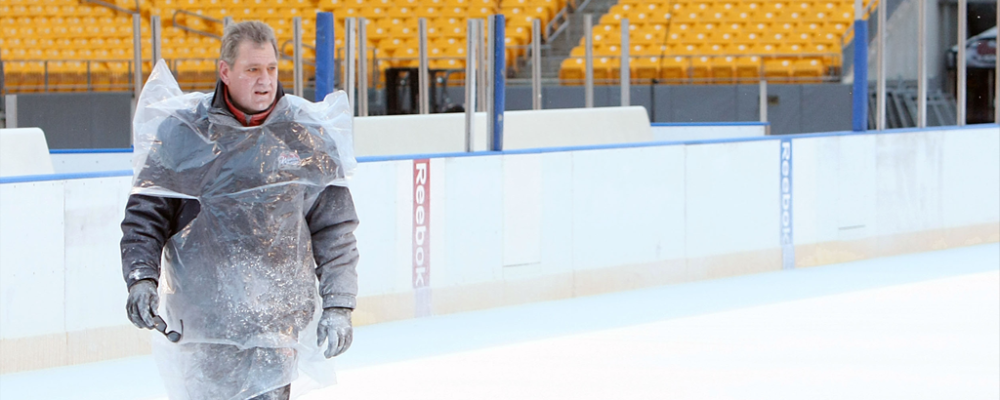
When Don Moffatt moved with his wife from Ontario, Canada, to Phoenix in 1987, he unexpectedly found his career.
Ironically, it took relocating to the American Southwest for Moffatt to discover the ice rink business.
“I just kind of fell into an ice rink,” said Moffatt, who was refereeing and playing hockey at a Tempe ice facility when he was offered a job there. “It was a small community rink, and I really enjoyed it.”
Moffat was soon focusing on professional development, taking classes and earning certifications. By 1996, when the Winnipeg Jets moved to Phoenix to become the Coyotes, Moffatt was experienced enough for the new NHL team to hire him as director of operations.
“That’s when I kind of realized I could make a career out of it,” Moffatt said.
Moffatt was later hired as facilities operations supervisor for the NHL. He worked on developing standards and improving ice conditions throughout the league.
The now 67-year-old Moffatt has carved out a nearly four-decade career freezing water. A year from now, he will be in Milano and Cortina, Italy, working as chief ice maker at his fifth Winter Olympic Games.
“Everyone is like completely, 100% different,” Moffatt said of the Olympics. “It’s amazing. The experience definitely helps, but they’re so different.”
Given how he grew up, it’s no real surprise that Moffatt wound up working in hockey.
Moffatt took his first steps at nine months. Two months later, he skated for the first time. He grew up with a rink in his backyard, so he spent plenty of time on the ice.
Moffatt played hockey through high school and college but noted that he was no star.
“I was always the last one to make [the team],” he said, “or the last one cut.”
When he first started working in ice rinks, Moffatt said people with industry knowledge and experience were reluctant to share with others for fear of losing their jobs. That has changed over time. Now, there’s more communication and openness, which has helped standardize ice making.
Though such technological innovations as lasers and driverless ice resurfacing vehicles have made their debuts, Moffatt said that much of the business has remained the same during his career.
“The basic numbers, pretty much everybody knows, and it’s just how your building gets to them,” he said. “Everybody knows what the goal is. The basics have really stayed the same.”
Moffatt, who recently retired as arena operations coordinator at Colorado College and still works Colorado Avalanche games, values all of the relationships he has forged at all levels over his long career.
“That’s probably one of the cool things about the rink industry is you meet some really good people, hardworking people, most of the times that are underpaid for what we do, especially at the higher levels,” he said. “Really good, down-to-earth, hardworking people that take pride and have passion in what they do. They have to care.”
Moffatt has plenty of memories from his years of working on the ice. At his first Olympic Winter Games in 2006 in Torino, Italy, he earned the nickname of “Superman” from the Latvian team when he repaired the bent bar on their bench door in the middle of a game against the U.S. using only vice-grips he was carrying.
“It was very, very soft steel,” Moffatt said.
Later at the same Games, he resurfaced large gaps in the ice that reached down to the cement below less than a half-hour before the start of the Italy-Canada game. He did it with just five minutes to spare.
Originally, Moffatt was looking at the 2026 Winter Games as a full-circle moment because they will be held in Italy, site of his first Olympic experience 20 years ago. He was thinking about stepping away after that, but now he’s not so sure.
As long as his remains in good health, Moffatt may return to work the 2030 Olympics in the French Alps.
“That definitely sounds interesting,” said Moffatt, who is all about giving back to the sport at this point. “All the knowledge and the experience that I have is useless if I can’t share it.”
Story from Red Line Editorial, Inc.
Source: usahockey.com
